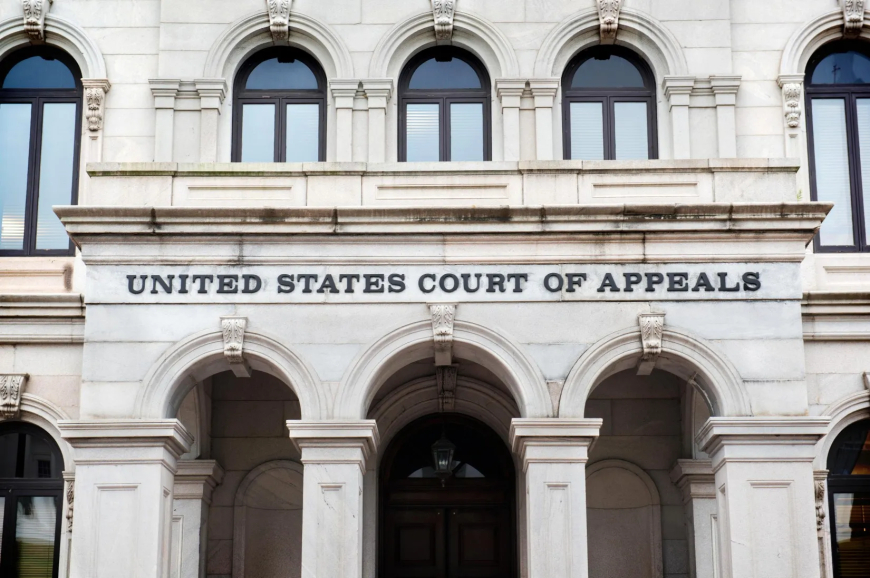Appeals Court Blocks Trump’s Use of Alien Enemies Act for Venezuelan Deportations
A federal appeals court has blocked President Trump’s attempt to invoke the Alien Enemies Act to deport Venezuelan migrants tied to Tren de Aragua, citing due process concerns.

A federal appeals court has dealt a significant setback to the Trump administration’s immigration enforcement agenda. On Wednesday, the 5th U.S. Circuit Court of Appeals ruled against President Donald Trump’s attempt to invoke the Alien Enemies Act, a wartime-era statute, to expedite the deportation of Venezuelan migrants accused of ties to the violent Tren de Aragua gang.
The court’s decision underscores judicial resistance to the administration’s broader immigration strategies, many of which have tested the limits of executive authority and constitutional protections.
The Alien Enemies Act and Its Controversial Use
The Alien Enemies Act, first enacted in 1798, grants the president the authority to detain or deport nationals of hostile nations during times of declared war. Historically, it has been used sparingly, most infamously during World War II to justify restrictions on Japanese, German, and Italian immigrants.
President Trump’s legal team argued that escalating violence linked to Tren de Aragua—an international criminal syndicate with roots in Venezuela—posed a sufficient threat to invoke the Act in peacetime. Administration officials claimed that expedited deportations were necessary to prevent the group from expanding operations in U.S. cities.
However, immigrant rights organizations challenged the measure, asserting that it not only lacked constitutional grounding but also endangered due process rights.
The Court’s Ruling
In a 2-1 decision, the appeals court sided with challengers, holding that the administration’s interpretation of the Alien Enemies Act was “unprecedented and overbroad.” Judge Maria Gonzalez, writing for the majority, emphasized that “no formal state of war exists between the United States and Venezuela” and that applying the statute in this context would effectively allow the executive branch unchecked authority to target foreign nationals.
The court also noted that many of those facing deportation under the policy were detained on scant evidence, with accusations of gang affiliation often resting on unverified tips or circumstantial associations.
Reaction from Advocacy Groups
Immigrant rights groups hailed the ruling as a victory for constitutional protections. “The Trump administration attempted to weaponize a centuries-old law against vulnerable communities,” said Carlos Menendez of the American Immigration Council. “The court made clear that due process cannot be discarded for political expediency.”
Civil liberties organizations echoed those sentiments, warning that the administration’s approach risked setting a precedent for targeting immigrant groups during periods of heightened political tension.
Broader Immigration Enforcement Push
The ruling comes as President Trump has redoubled his immigration enforcement agenda since returning to office. Alongside efforts to expand deportations, the administration has announced plans to deploy National Guard troops to cities such as Chicago in a bid to combat violent crime and alleged gang activity.
Critics argue that conflating urban crime reduction with immigration enforcement further stigmatizes immigrant communities. Supporters, however, maintain that aggressive measures are necessary to restore public safety in cities struggling with high crime rates.
The Department of Justice has not yet confirmed whether it will seek to appeal the decision to the Supreme Court.
Implications for Future Policy
Legal experts suggest the ruling could constrain the administration’s ability to repurpose obscure statutes for immigration crackdowns. “This decision reaffirms that the president cannot rely on outdated wartime powers to bypass constitutional safeguards,” said Professor Elena Rodriguez of Georgetown Law.
The case also highlights the ongoing tension between executive ambition and judicial oversight in shaping U.S. immigration policy. With deportations and border enforcement remaining central to the Trump administration’s platform, further legal battles are all but inevitable.
What's Your Reaction?
 Like
0
Like
0
 Dislike
0
Dislike
0
 Love
0
Love
0
 Funny
0
Funny
0
 Angry
0
Angry
0
 Sad
0
Sad
0
 Wow
0
Wow
0








































































